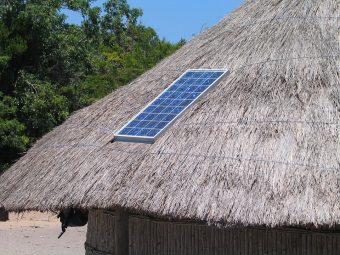
The COVID-19 pandemic has been a key factor in slowing progress toward universal energy access. Globally, 733 million people still have no access to electricity, and 2.4 billion people still cook using fuels detrimental to their health and the environment. At the current rate of progress, 670 million people will remain without electricity by 2030 – 10 million more than projected last year.
The 2022 edition of Tracking SDG 7: The Energy Progress Report shows that the impacts of the pandemic, including lockdowns, disruptions to global supply chains, and diversion of fiscal resources to keep food and fuel prices affordable, have affected the pace of progress toward the Sustainable Development Goal (SDG 7) of ensuring access to affordable, reliable, sustainable and modern energy by 2030. Advances have been impeded particularly in the most vulnerable countries and those already lagging in energy access. Nearly 90 million people in Asia and Africa who had previously gained access to electricity, can no longer afford to pay for their basic energy needs.
The impacts of the COVID-19 crisis on energy have been compounded in the last few months by the war in Ukraine, which has led to uncertainty in global oil and gas markets and has sent energy prices soaring.
More:
Africa remains the least electrified in the world with 568 million people without electricity access. Sub-Saharan Africa’s share of the global population without electricity jumped to 77 per cent in 2020 from 71 per cent in 2018 whereas most other regions saw declines in their share of the access deficits. While 70 million people globally gained access to clean cooking fuels and technologies, this progress was not enough to keep pace with population growth, particularly in Sub-Saharan Africa.
“International public financing for renewable energy needs to accelerate, especially in the poorest, most vulnerable countries. We have failed to support those most in need. With only eight years left to achieve universal access to affordable and sustainable energy, we need radical actions to accelerate the increase of international public financial flows and distribute them in a more equitable manner, so 733 million people who are currently left behind can enjoy the benefits of clean energy access”, said Francesco La Camera, Director-General of the International Renewable Energy Agency.
Source: IRENA



